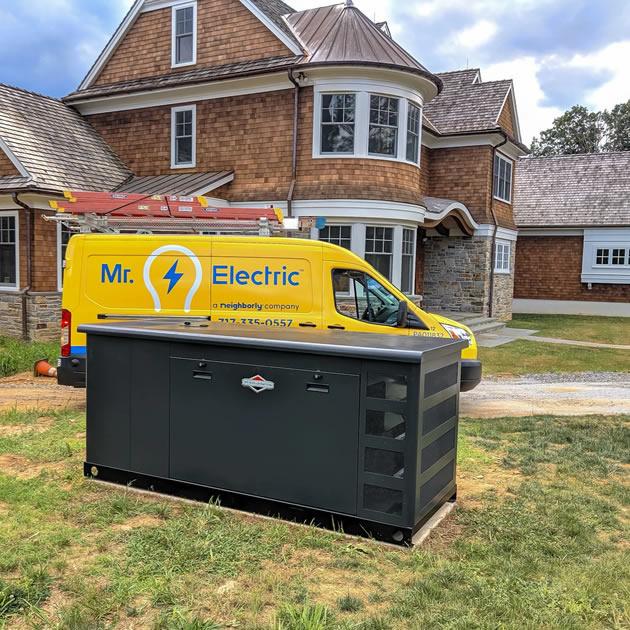Call This Sunday to Get $50 OFF
Call This Sunday to Get $50 OFF

Choosing between a natural gas and propane generator can make a big difference in efficiency, cost, and performance. Both fuel types offer dependable energy when the grid goes down, but each has its own advantages and drawbacks.
In this blog post, we’ll help you make a choice between natural gas vs. propane. As licensed electricians with decades of experience, we’ve handled countless generator installation projects in residential and commercial properties.
One of the major differences between natural gas and propane generators is fuel availability. Natural gas is delivered directly to your property through underground lines, which means you don’t have to worry about running out of fuel during an outage. Propane, on the other hand, is stored in tanks and needs to be refilled periodically. If you live in a rural area without access to natural gas lines, propane might be the more practical choice. However, for urban and suburban homes, the convenience of natural gas supply is hard to beat.
Both natural gas and propane are cleaner-burning fuels compared to gasoline or diesel. However, propane tends to burn slightly cleaner, producing fewer greenhouse gas emissions per unit of energy. In terms of efficiency, propane generators deliver more energy per cubic foot than natural gas generators, meaning they can run longer on less fuel. That said, natural gas is often more cost-effective over time since it’s cheaper per unit of energy and requires no delivery or storage costs.
Natural gas generators are easier to maintain once installed because the fuel supply is constant and clean. You won’t have to schedule fuel deliveries or worry about tank corrosion. Installation, however, can be more complex if your property doesn’t already have a gas line. Propane generators are easier to install in remote locations and are portable if you ever move or relocate your power system. But you’ll need to keep track of propane levels and schedule refills—something that can become a hassle during extended power outages.
When it comes to upfront costs, both types of generators are relatively similar. The ongoing expenses, though, can differ significantly. Natural gas tends to be more affordable and consistent in pricing, making it a cost-efficient option for frequent use. Propane prices can fluctuate depending on supply and demand, and the need for refilling can increase overall costs. However, propane generators often last longer because propane doesn’t degrade over time like gasoline or diesel.
The choice between natural gas and propane comes down to location, convenience, and usage. If you live in an area with access to a natural gas line and want a low-maintenance, cost-effective power source, a natural gas generator is an excellent investment. On the other hand, if you live in a rural area or prefer energy independence with on-site fuel storage, a propane generator might be the better fit. If you need help with choosing the right generator for your home, consult with a nearby electrical repair service.
Whether you decide to go with a natural gas or a propane generator, Mr. Electric has got you covered. As a trusted electrical service company, we take pride in offering professional generator installation services. With over two decades of experience and a team of licensed electricians, we’ve established ourselves as the go-to experts for installing generators. So, if you’re looking for a licensed electrician to help you choose and install the backup generator for your needs, reach out Mr. Electric.